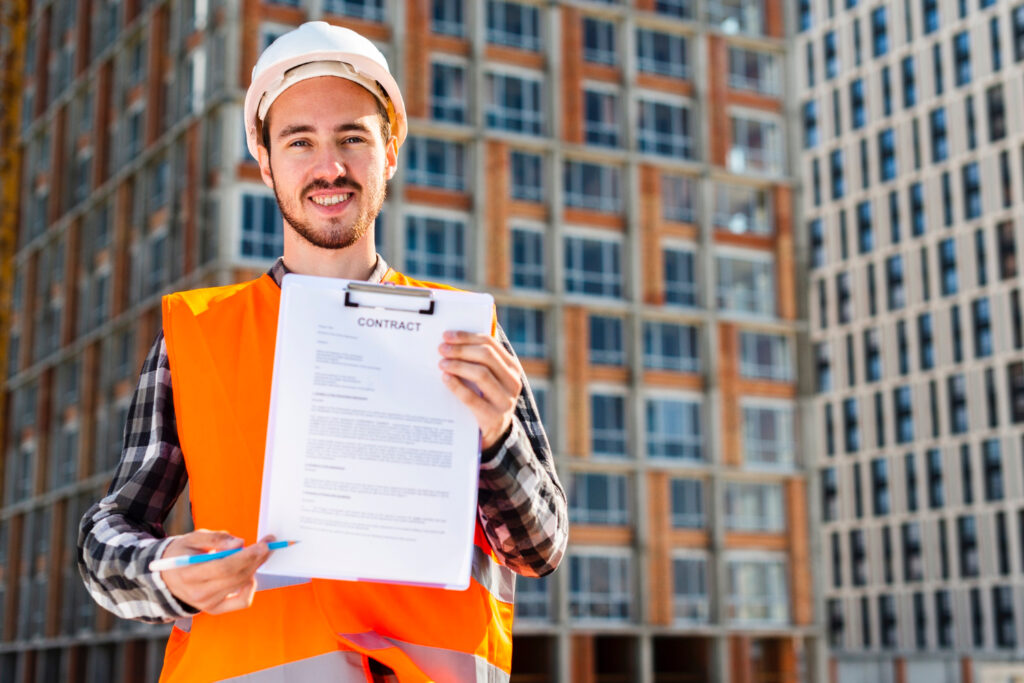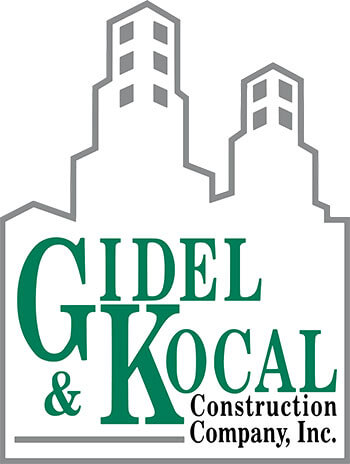
You’ve nailed your project vision. The renderings look sleek, the site is primed, and the financing is lined up. But guess what can still derail your entire commercial build in San Jose? Paperwork. Did you think about all the permits and regulations you need for commercial construction in San Jose?
Not just any paperwork, permits and regulations, approvals, and a stack of technical plans that must pass through the city’s regulatory bottleneck before a single shovel hits the dirt. And if you think a quick online application will cut it, you might be in for a months-long stall.
In San Jose, where even a minor renovation to an existing building can require a dozen different construction permits, navigating local compliance isn’t just a task. It’s a discipline. One misstep in the permitting process and your entire commercial construction project could be delayed, denied, or hit with thousands in permit fees and change orders.
So, how do top developers and business owners avoid that trap? They treat permitting as a strategic stage, not an afterthought, and they bring in partners who’ve walked that minefield hundreds of times.
Understanding Local Building Codes and Permit Requirements – Permits and Regulations for Commercial Construction
In San Jose, construction permits are governed by a layered system of local, state, and federal regulations, managed primarily through the local building department. Before any work begins, you’ll need to determine which construction permits apply to your proposed project based on its intended use, location, and scope of work.
A detailed set of building codes and local regulations is at the core of San Jose’s commercial construction environment. These aren’t just bureaucratic checkboxes but essential tools that ensure structural integrity, occupant safety, and long-term viability.
1. California Building Standards Code
All commercial buildings in San Jose must comply with the California Building Standards Code (Title 24), which includes:
- Building, electrical, plumbing, and energy standards
- Provisions for ADA standards and accessibility
- Rules on fire suppression, HVAC systems, and more
The latest amendments, like the 2022 Intervening Code Cycle, bring updates that directly affect the permit application process, especially for projects that modify existing buildings or propose innovative intended uses.
2. San Jose Municipal Code
In addition to statewide mandates, the San Jose Building Department enforces local provisions tailored to the city’s unique urban fabric. These include zoning restrictions, environmental impact mitigation, and safety regulations that reflect the region’s seismic sensitivity and dense population.
3. Trade-Specific Permits
Beyond your building permit, you’ll likely need:
- Electrical permits (for new electrical systems or upgrades)
- Plumbing permits (especially for tenant improvements or restaurant fit-outs)
- Mechanical permits (HVAC installation or replacement)
These specific permits may be submitted separately but must align with your construction plans.
4. Who Oversees What?
San Jose’s local jurisdictions divide responsibilities between departments:
- Planning Division: Zoning, land use, site development
- Building Division: Permit requirements, plan review, safety standards
- Fire Department: Review of fire safety features, including sprinklers and alarms
- Environmental Services: Wastewater, stormwater, and energy compliance
Generally, most projects require approval from each of these offices, especially when submitted plans fall into the new permit or change-of-use categories.
The Challenges of the Permitting Process
Securing permits and regulations for commercial construction in San Jose follows a clearly defined path, but each step has challenges. Even minor missteps can result in costly delays, from submitting plans to passing the final inspection.
Let’s break down the typical permitting process and the common obstacles that can slow down your commercial construction project.
1. Uploading Plans and Submitting a Detailed Permit Application
It all begins with submitting a complete permit application and well-documented construction plans. Many teams run into trouble: plans are missing key details, such as electrical plumbing layouts or fire system schematics, or they fail to align with local building codes and safety standards.
For most projects, the application must specify the intended use, occupancy type, and proposed modifications to the existing building or site. Submitting vague or inconsistent documentation is a common reason permits are rejected outright or stalled during review.
2. Undergoing Plan Review by Multiple Departments
Once the application is in, the plans go through plan review, not just by one department. In San Jose, reviews are conducted by:
- Zoning (for use, density, and land constraints)
- Fire Department (for alarms, suppression, and fire safety systems)
- ADA compliance teams (to ensure access standards are met)
- Structural engineers (to confirm structural integrity and seismic compliance)
Each group reviews the project independently, and feedback can come in waves. Managing this coordination efficiently is critical to avoid conflicting feedback that causes delays.
3. Addressing Corrections and Revisions Based on Building Codes
Most applications don’t pass the first round. Expect correction notices highlighting areas that don’t meet the permit requirements under the California Building Standards Code or San Jose local regulations. Revisions might involve updating your uploaded plans, enhancing fire suppression systems, or redesigning ADA-compliant entries. The faster your design team can respond, the less time you lose.
4. Paying Permit Fees (Which Can Vary Significantly)
Once your plans are approved, it’s time to pay your permit fees, but the cost isn’t always straightforward. Fees vary depending on:
- Project type (new build, tenant improvement, change of use)
- Square footage
- Number and type of trade permits (e.g., electrical, plumbing, mechanical)
Missing a required fee or underestimating costs can delay the permit issuance or lead to unexpected budget overruns.
5. Completing Final Inspection and Receiving Full Approval
The final hurdle is inspection. Once construction is complete, the local building department will inspect the site to ensure everything was built according to the approved plans and that all specific permits, from electrical systems to fire safety, were implemented correctly.
Failing the final inspection means going back and addressing deficiencies, which could involve structural changes, new permit applications, or schedule delays. Only once all approvals are in place is your commercial project cleared for occupancy or use.
Tips for Smoother Permit Approvals
While you can’t skip the red tape, you can sidestep many headaches by planning. Here are proven strategies for moving through the permitting process with fewer roadblocks:
Conduct Thorough Research Early
Each local building department has its checklist. Doing thorough research into what’s needed for your specific project type, from electrical plumbing upgrades to occupancy changes, will reduce rework later.
Involve the Right Team from the Start
Your building team should include experienced professionals, licensed commercial general contractors, architects, and engineers who understand local codes and have experience navigating San Jose building permits. The smoother your initial submittal, the faster your approval.
Anticipate Specialized Approvals
Projects involving fire safety, healthcare, or existing structure alterations often demand specific permits. Working with a pre-construction planner can help ensure you prepare for these early.
Don’t Underestimate the Value of Scheduling
Many San Jose commercial general contractors directly plan the permit application timeline into the project schedule. This allows you to build around the plan review process and avoids surprises that stall the entire construction project.
How Gidel & Kocal Assists Clients with Compliance
At Gidel & Kocal, we approach every commercial construction project with one goal: eliminate surprises before they happen. That’s why our compliance strategy begins long before construction starts and continues until the final inspection.
We integrate local code knowledge and permit requirements into your project plan from day one. By anticipating the needs of the local building department, we reduce delays, avoid rework, and keep your project moving.
Our pre-construction services include:
- Design Development: We align architectural plans with zoning laws, building codes, and San Jose’s unique requirements.
- Constructability Reviews: We assess how your design interacts with existing conditions, which is critical for additions or adaptive reuse of existing structures.
- Value Engineering: We recommend compliant, cost-saving alternatives that meet safety and performance standards.
- Permit Application Management: We prepare and submit complete documentation for all required construction permits, including trade permits, to reduce back and forth.
- Timeline Optimization: We build realistic schedules with built-in buffers for plan review, revisions, and multi-agency coordination.
With compliance built into every phase, we help ensure your construction project reaches approval and completion without unnecessary setbacks.
Conclusion
Getting a permit isn’t the goal. Getting the correct permit at the right time, without setbacks, that’s the real win. Because in commercial development, momentum is money. And every delay in permit approval, missed zoning nuance, and unclear scope item in your construction plans chip away at that momentum.
That’s why compliance shouldn’t be a box you check. It should be a foundation you build on with the help of professionals who know the local building department, understand San Jose’s regulations, and have the foresight to flag problems before they surface.
If you’re planning a commercial construction project in the Bay Area, don’t leave your approvals to chance. Partner withGidel & Kocal to move from concept to completion on time, within budget, and fully compliant.
